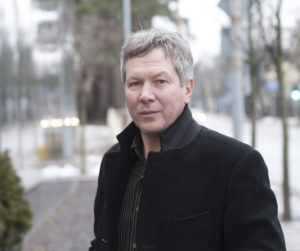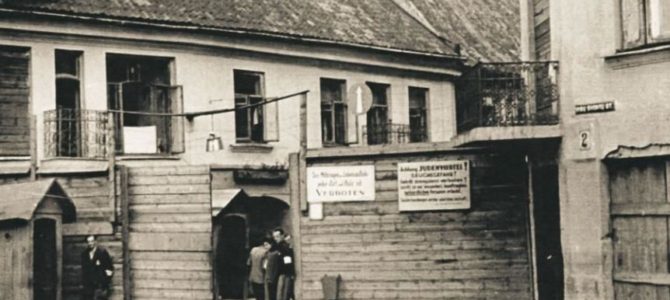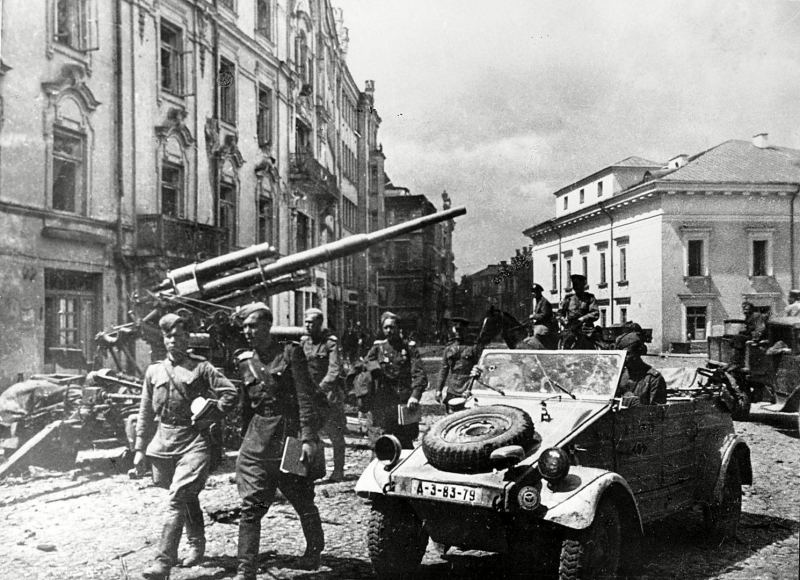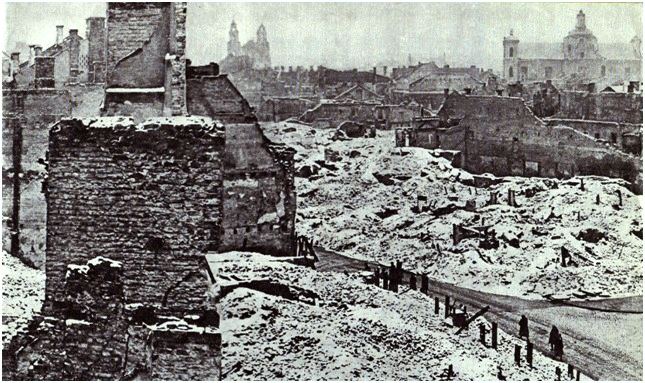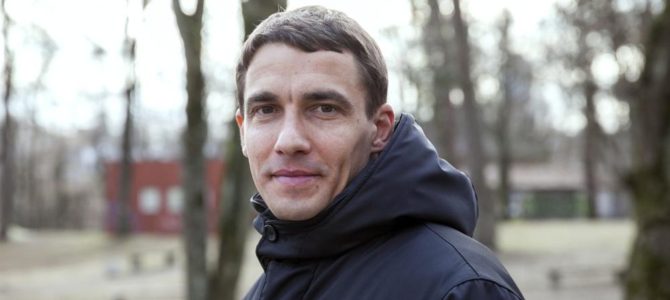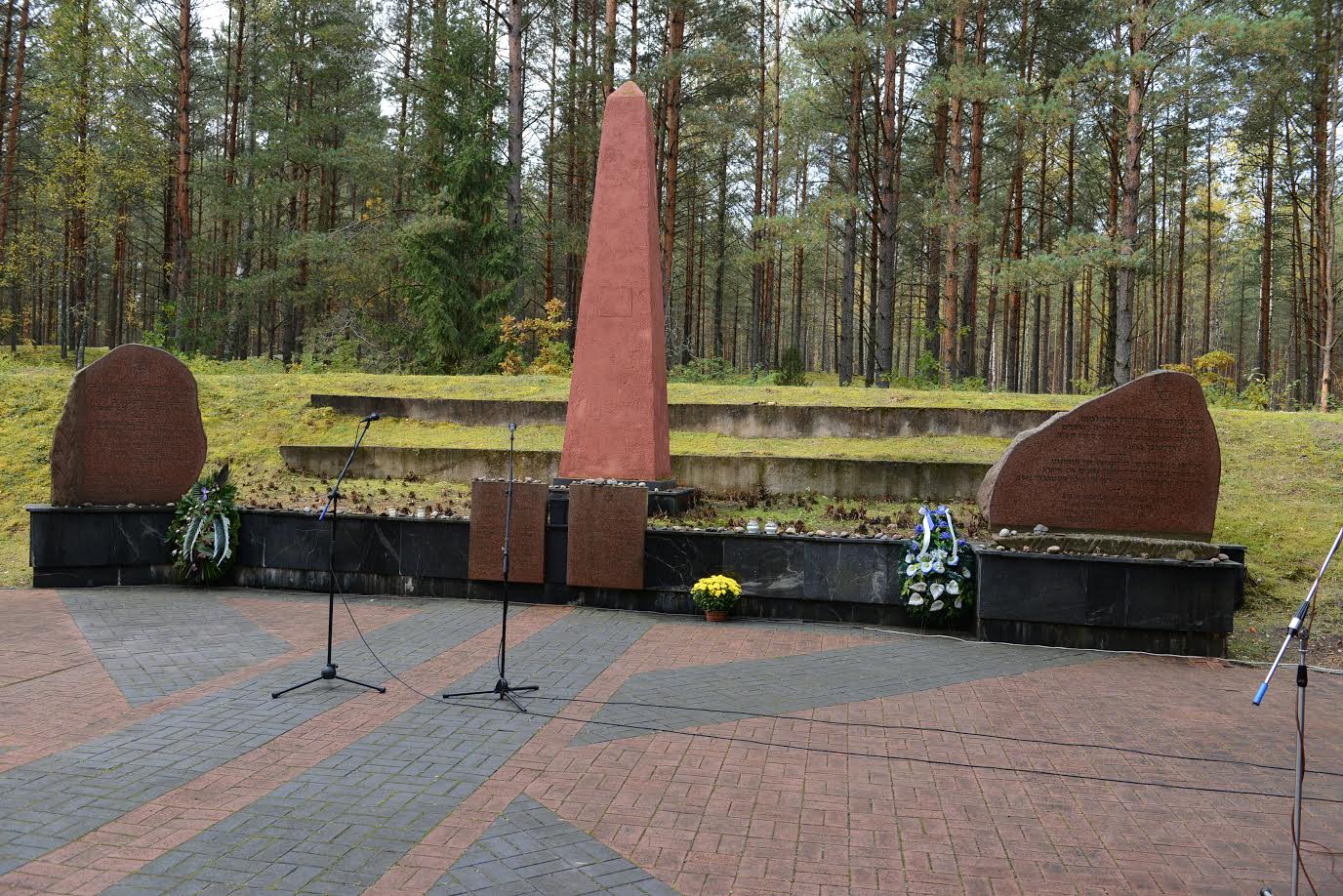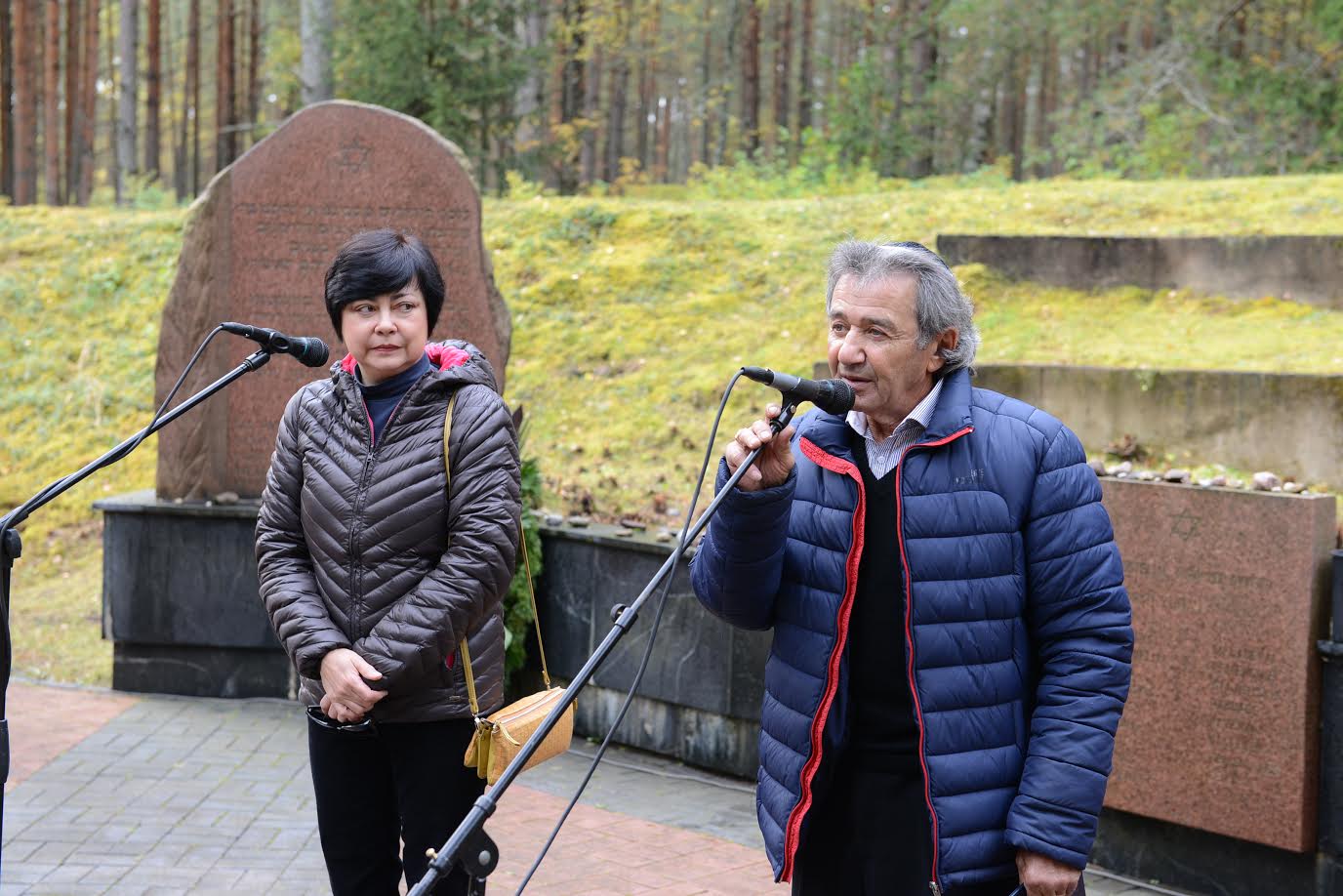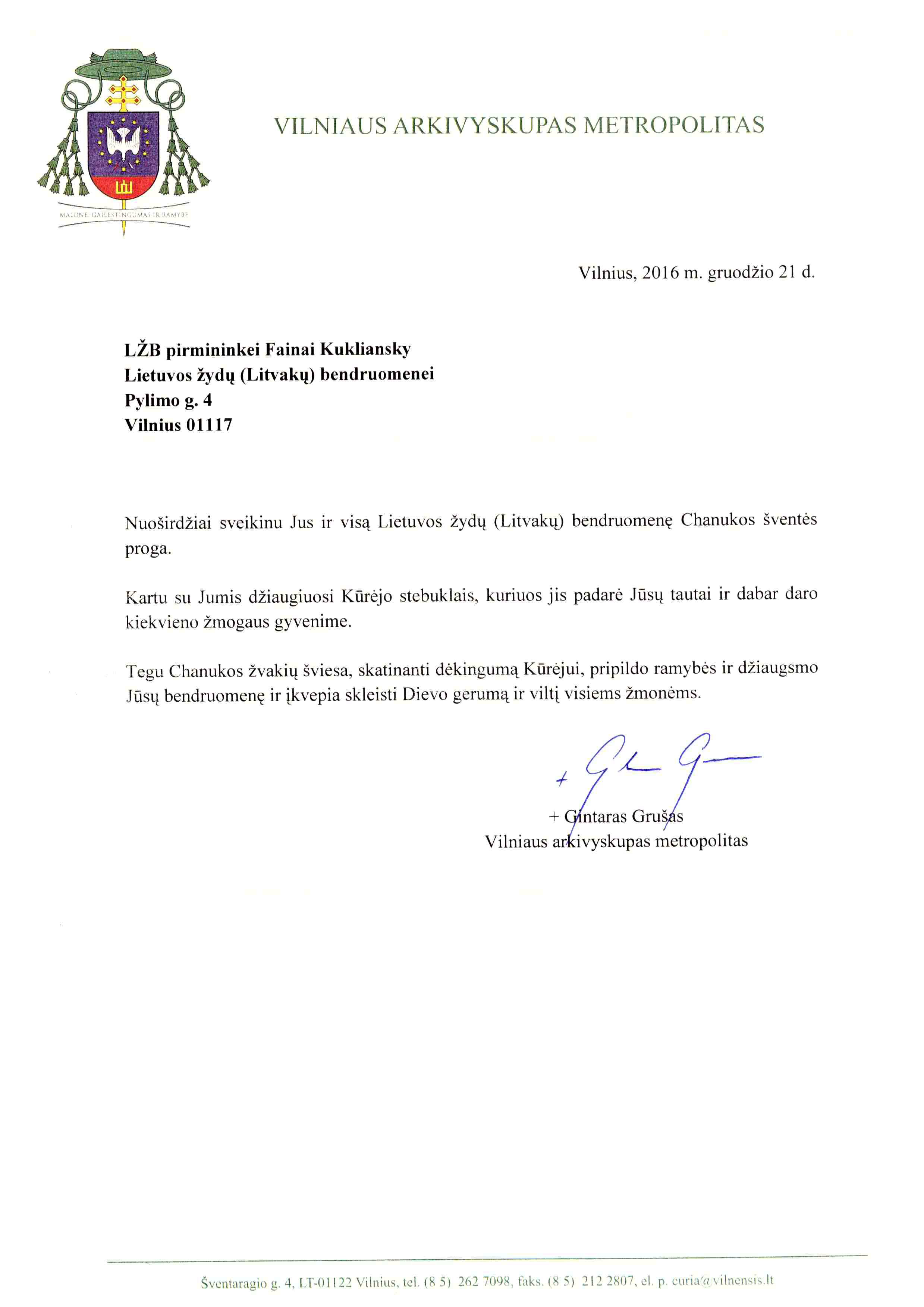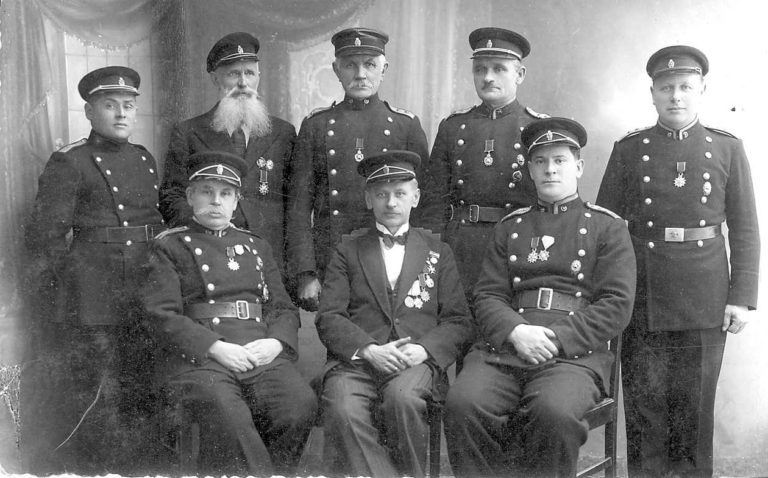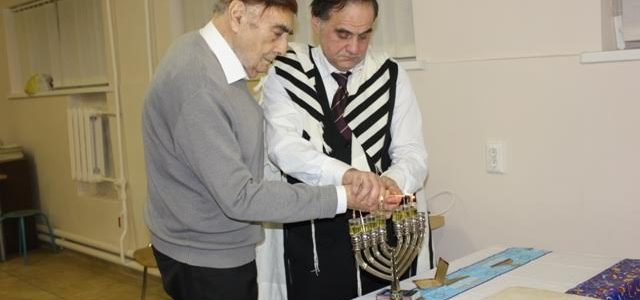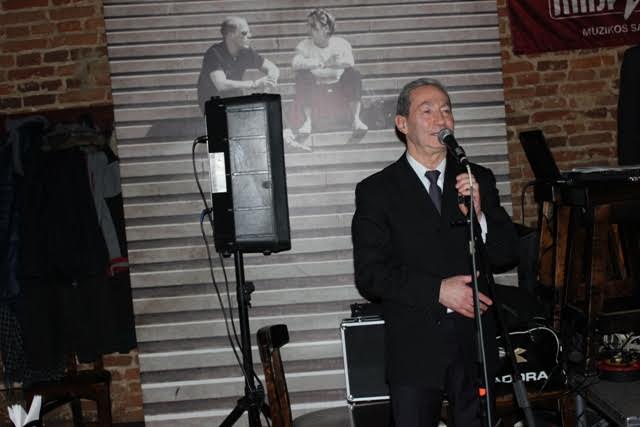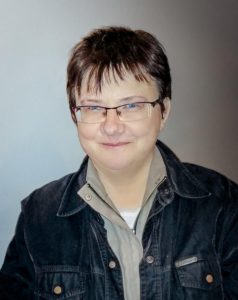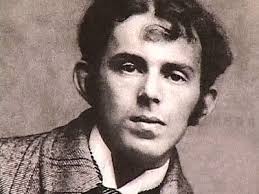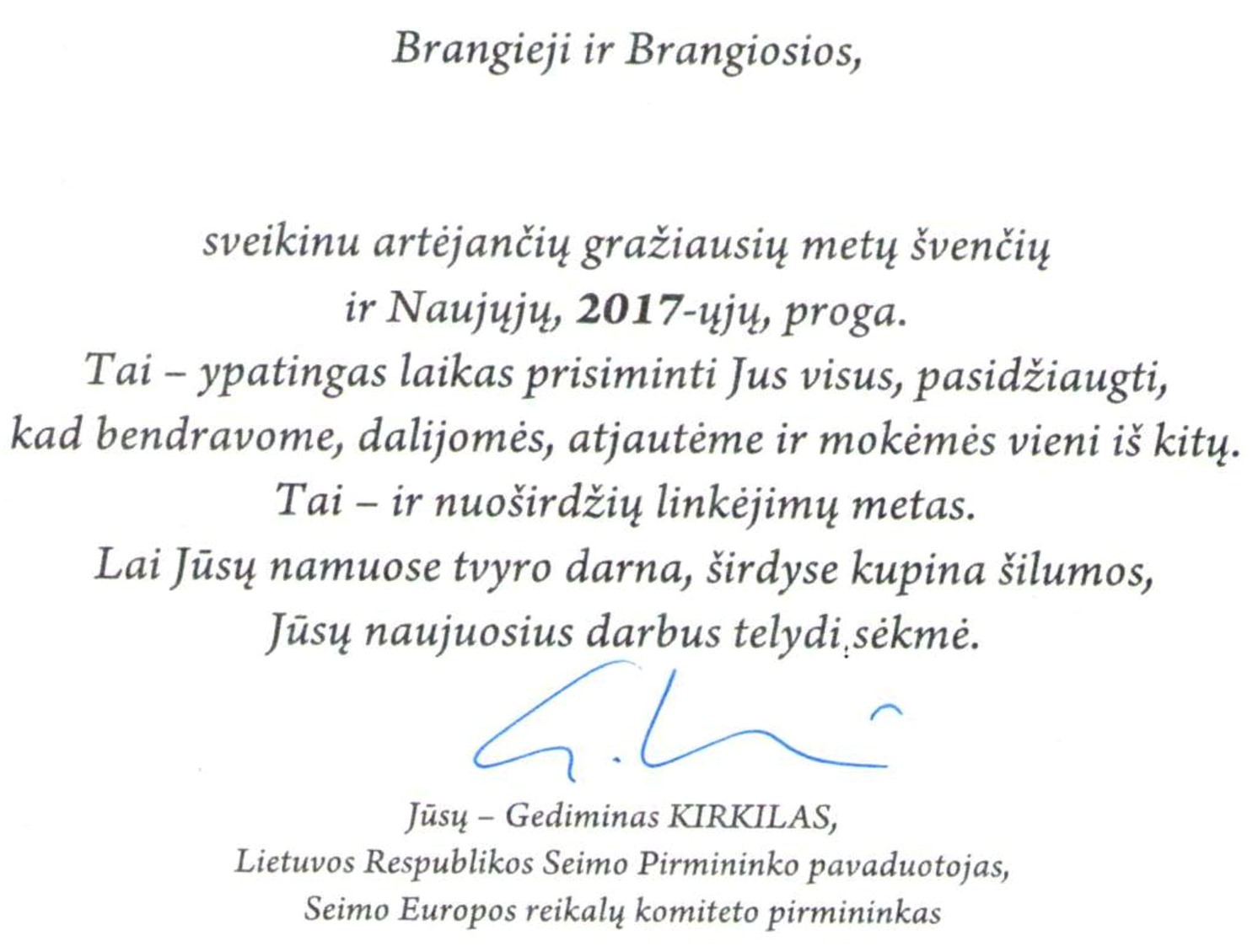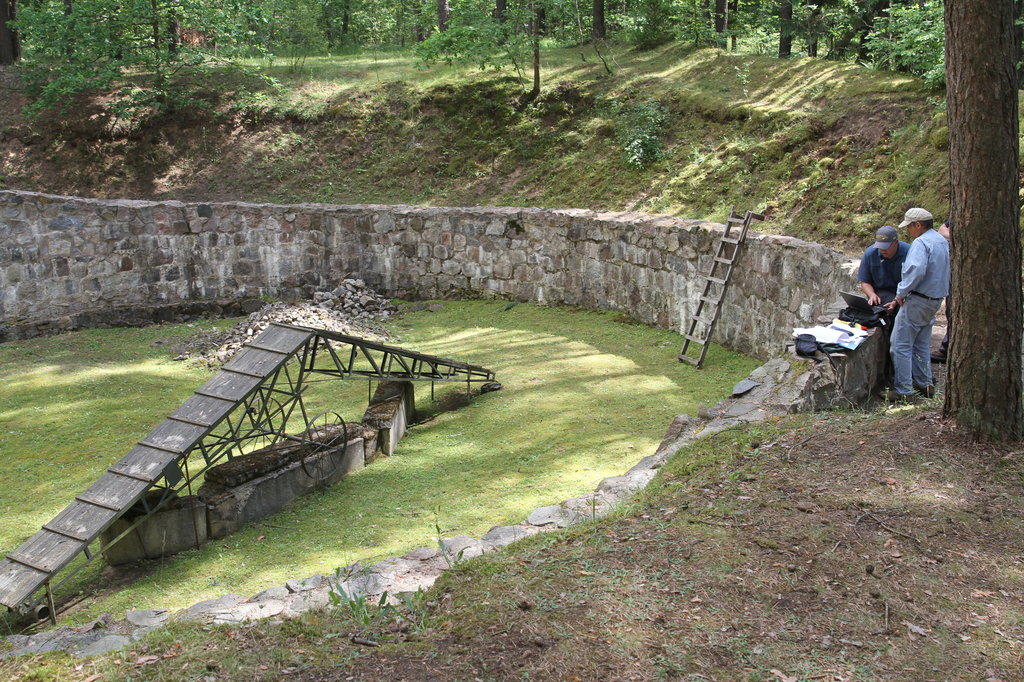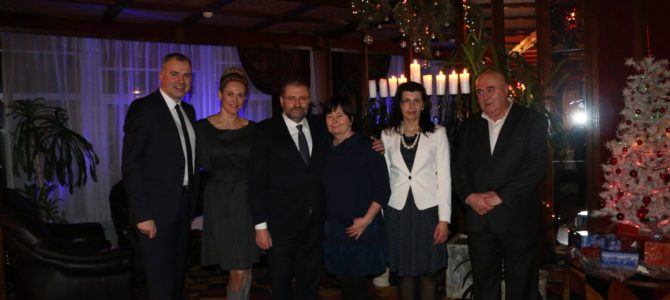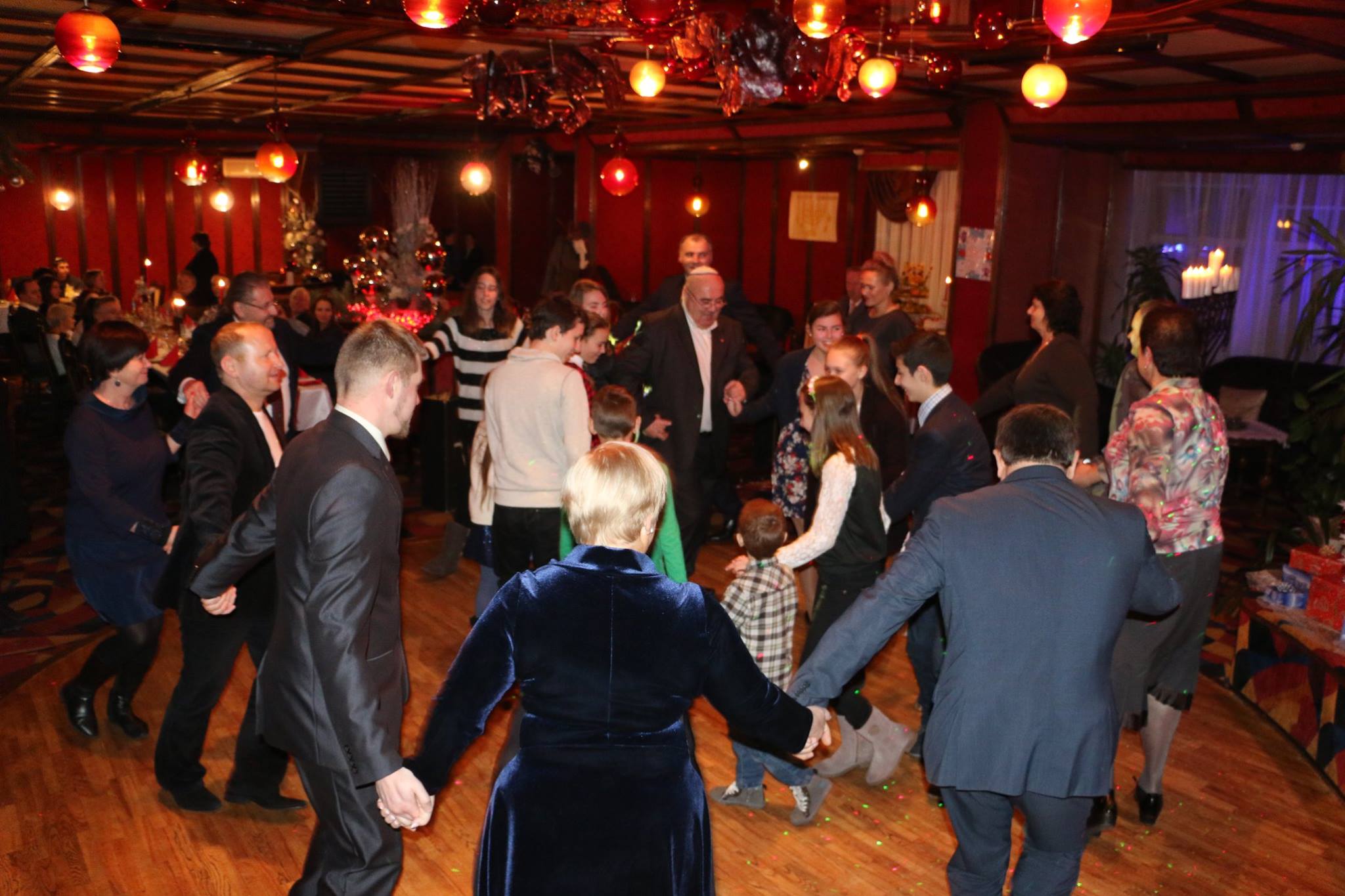
Baltic News Service reported Lithuanian Jewish Community chairwoman Faina Kukliansky responded after actress Asta Baukutė performed a gesture intended to imitate Adolf Hitler on a television program on Friday called Atspėk dainą [Name That Tune], saying the behavior was in poor taste.
“Since I haven’t looked into it, I can’t say that this is offensive, but my question would be, who needs to joke like that? There are a million other topics and perhaps this was a joke which failed. I don’t understand that kind of joke and likely others do not either, so a completely unfunny response is possible. In my understanding these sorts of things should be avoided generally. … Perhaps a little more talent and a deeper understanding is needed to pull this off, improvisation doesn’t really work. It’s even impolite and in poor taste,” Kukliansky was quoted as saying by BNS.
Friday Baukutė on the broadcast of Atspėk dainą guessed the tune by Simonas Donskovas, lept to her feet and apparently made gestures intended to imitate Hitler. The program was not live and was broadcast from material shot earlier.
Kukliansky, according to BNS, said she didn’t find Baukutė’s actions humorous and wondered why it was included in the final edit for the show.
“After seeing the initial information about, she acted very strangely. Or maybe I don’t have enough of a sense of humor, but it wasn’t funny to me at all. There might be a different subtext at work in the show which I didn’t get. I don’t understand in general why this is necessary. Aren’t there other topics? All the more since this was recorded, and perhaps there should be more caution exerted with respect to certain social groups, and more effort to make sure the program isn’t misinterpreted. Most likely Ms. Baukutė didn’t intend anything bad, she was probably making fun of Hitler, but she didn’t manage to pull it off completely successfully,” Kukliansky told BNS.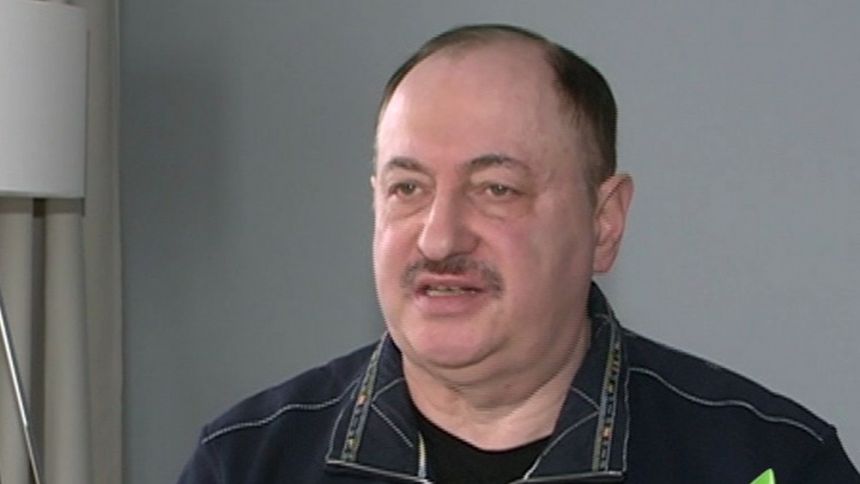
BNS was unable to reach Baukutė for comment. On Saturday she told the internet news site 15min.lt she was sorry about her behavior on the Lithuanian National Radio and Television program. “This is a normal democratic state. I think it’s allowed to make jokes. In our wonderful Lithuania these kinds of talented ethnicities may establish schools and perform in show business. This is a country which shouldn’t get hung up because of that gesture, I didn’t have that intention. There was no politics in my gesture at all. I think we can be happy that such things as Jew-baiting do not happen in Lithuania. If someone wants to create a conflict, which I certainly do not, and if someone perceived a bad subtext, I truly apologize,” the actress told the news site.




